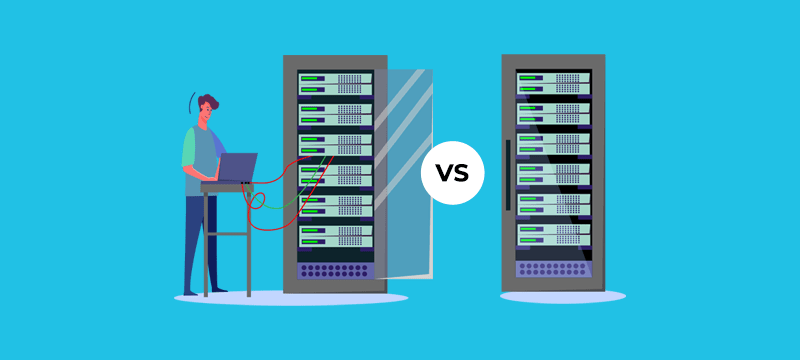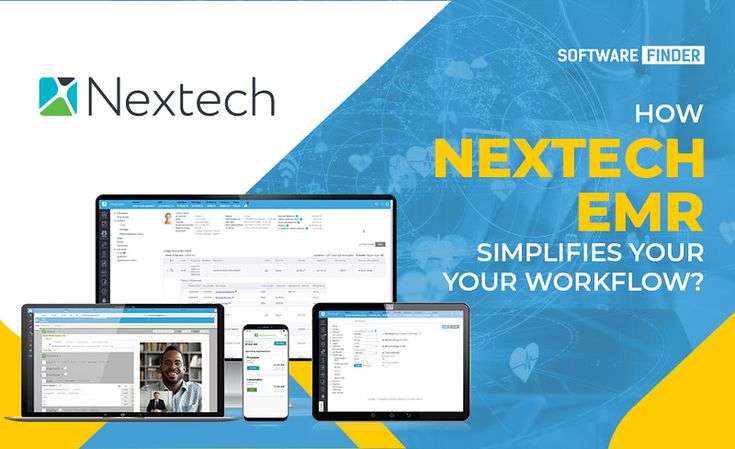The Impact of Artificial Intelligence in Healthcare: How AI is Revolutionizing Diagnosis, Treatment, and Patient Care
The field of healthcare is witnessing a revolutionary transformation with the integration of Artificial Intelligence (AI) technologies. AI is rapidly making its mark in various aspects of healthcare, including diagnosis, treatment, and patient care. This article explores the profound impact of Artificial Intelligence in healthcare and its potential to improve the accuracy, efficiency, and quality of healthcare services.
AI in Diagnosis
AI algorithms are proving to be invaluable in medical imaging and radiology, aiding healthcare professionals in detecting and diagnosing various conditions with greater accuracy. The use of AI-driven algorithms and deep learning models has shown promising results in early disease detection, enabling timely intervention and improved patient outcomes. The article delves into specific examples and success stories where AI has played a critical role in diagnosing complex conditions.
AI algorithms have demonstrated remarkable capabilities in medical imaging and radiology, surpassing human performance in certain tasks. These algorithms can analyze large volumes of medical images, such as X-rays, MRIs, and CT scans, with incredible speed and precision. By learning from extensive datasets, AI models can identify subtle patterns and anomalies that may be missed by human observers.
This enhanced diagnostic accuracy has significant implications for early disease detection, particularly in conditions like cancer, where timely intervention is crucial. Real-world examples showcase how AI algorithms have detected tumors identified abnormalities and assisted radiologists in making accurate diagnoses, ultimately improving patient outcomes and potentially saving lives.
AI in Treatment
Personalized medicine and treatment planning are being revolutionized by AI. By analyzing vast amounts of patient data, AI algorithms can generate tailored treatment plans that take into account an individual’s unique characteristics, genetic makeup, and medical history. Furthermore, AI-guided robotic surgery and minimally invasive procedures are enhancing precision, reducing recovery time, and improving patient outcomes. The article discusses the potential of AI in drug discovery and development, accelerating the process of finding new therapies and optimizing existing treatments.
In the realm of personalized medicine, AI is playing a transformative role by enabling treatment plans that are tailored to each patient’s specific needs. By analyzing vast datasets encompassing genetic information, medical records, and clinical trials data, AI algorithms can identify patterns, genetic markers, and treatment responses that help inform personalized treatment decisions. This approach holds tremendous potential in areas such as oncology, where identifying the most effective therapies for individual patients is crucial.
Moreover, AI is revolutionizing surgical procedures through robotic assistance, enabling surgeons to perform intricate tasks with enhanced precision and minimal invasiveness. These advancements not only lead to shorter recovery times but also contribute to improved patient outcomes. Additionally, AI is driving innovation in drug discovery and development, accelerating the identification of potential therapeutic compounds, optimizing drug formulations, and identifying novel targets for intervention. The integration of AI in these aspects of treatment opens up new possibilities for more effective and personalized healthcare interventions.
AI in Patient Care
AI technologies are transforming patient care by enabling remote monitoring and telehealth solutions. Virtual assistants and chatbots powered by AI provide round-the-clock support to patients, answering queries, and offering personalized guidance. Remote patient monitoring devices and wearables equipped with AI algorithms can collect and analyze real-time health data, alerting Artificial Intelligence in healthcare providers to potential issues and enabling early intervention. Additionally, predictive analytics powered by AI help in disease management and preventive care, identifying patterns and risk factors to improve patient outcomes.
AI is revolutionizing patient care through the integration of remote monitoring and telehealth solutions. Virtual assistants and chatbots equipped with AI algorithms are providing patients with continuous support and guidance, addressing their queries, and offering personalized recommendations. These AI-powered systems can triage patients, assess symptoms, and provide preliminary diagnoses, thereby reducing the burden on healthcare professionals and enhancing access to care.
Moreover, remote patient monitoring devices and wearables, embedded with AI capabilities, enable the collection and analysis of real-time health data. By continuously monitoring vital signs, medication adherence, and other relevant parameters, AI algorithms can detect abnormalities and alert healthcare providers, facilitating timely intervention and improving patient outcomes. Additionally, predictive analytics powered by AI can help in disease management and preventive care. By analyzing large datasets and identifying patterns, AI algorithms can identify risk factors, predict disease progression, and optimize treatment plans, ultimately leading to better patient outcomes and improved population health.
Ethical and Regulatory Considerations
As AI becomes increasingly integrated into healthcare, ethical and regulatory considerations come to the forefront. Safeguarding patient privacy and ensuring the security of sensitive health data are critical challenges. Transparency and explainability of AI algorithms are also important to build trust and understanding of the decision-making process. The article explores the existing regulatory frameworks and guidelines for AI implementation in healthcare and discusses the need for ongoing ethical discussions and oversight.
Challenges and Future Directions
While the potential of Artificial Intelligence in healthcare is immense, several challenges need to be addressed. Integrating AI into existing healthcare systems and workflows requires careful planning and collaboration. Concerns about job displacement and the need for healthcare professionals to acquire new skills and expertise in working alongside AI are important considerations. The article also discusses the future directions of AI in healthcare, including advancements in natural language processing, predictive analytics, and AI-driven medical research.
Integrating Artificial Intelligence in healthcare systems and workflows poses various challenges that need to be addressed. One of the key challenges is ensuring seamless integration with existing technologies and infrastructure. Healthcare organizations must carefully plan and implement AI solutions that align with their specific needs, ensuring interoperability with electronic health record systems, medical devices, and other clinical tools. This requires collaboration between technology providers, healthcare professionals, and IT departments to ensure a smooth transition and minimize disruptions in patient care.
Another significant challenge is the concern over job displacement and the role of healthcare professionals in Artificial Intelligence in healthcare landscape. While AI has the potential to automate certain tasks and improve efficiency, it is important to recognize that AI is not meant to replace healthcare professionals but rather to augment their capabilities. Healthcare professionals will need to acquire new skills and expertise to effectively collaborate with AI systems, leveraging their clinical knowledge and judgment in conjunction with AI-generated insights. Continuous education and training programs should be implemented to ensure that healthcare professionals can adapt to this evolving landscape and maximize the benefits of AI in patient care.
Looking ahead, the future of Artificial Intelligence in healthcare is promising, with several exciting directions for development and innovation. Natural language processing (NLP) holds great potential in healthcare, enabling AI systems to understand and process unstructured clinical data such as physician notes, medical literature, and patient health records. By extracting valuable insights from these vast amounts of textual data, NLP-powered AI can assist in clinical decision-making, evidence-based medicine, and personalized care.
Predictive analytics is another area where AI is expected to make significant strides. By leveraging large datasets and advanced algorithms, AI can help predict disease outcomes, identify high-risk patients, and optimize treatment strategies. This has implications for disease management, preventive care, and population health management, enabling healthcare providers to proactively intervene and allocate resources effectively.
Furthermore, AI-driven medical research is poised to accelerate the discovery and development of new therapies. AI algorithms can analyze vast amounts of medical data, genomics data, and scientific literature, leading to the identification of new drug targets, the repurposing of existing drugs, and the optimization of clinical trials. AI can also facilitate precision medicine by identifying patient subgroups that are likely to respond favorably to specific treatments, leading to more targeted and effective interventions.
In conclusion, while there are challenges to overcome, the future of Artificial Intelligence in healthcare holds great promise. Through careful integration, collaboration, and upskilling of healthcare professionals, AI can revolutionize patient care, diagnosis, and treatment. Advancements in natural language processing, predictive analytics, and AI-driven medical research are set to transform healthcare delivery and improve patient outcomes. By harnessing the power of AI while upholding ethical standards and ensuring patient privacy, we can pave the way for a future where AI and human expertise work hand in hand to deliver the best possible care.
Conclusion
In conclusion, AI has the power to revolutionize healthcare by enhancing diagnosis, treatment, and patient care. The integration of AI technologies has the potential to improve accuracy, efficiency, and patient outcomes, paving the way for personalized medicine and precision healthcare. While challenges exist, the ongoing collaboration between healthcare professionals, researchers, policymakers, and technology developers is crucial to maximizing the potential of Artificial Intelligence in healthcare and delivering better outcomes for patients worldwide.


